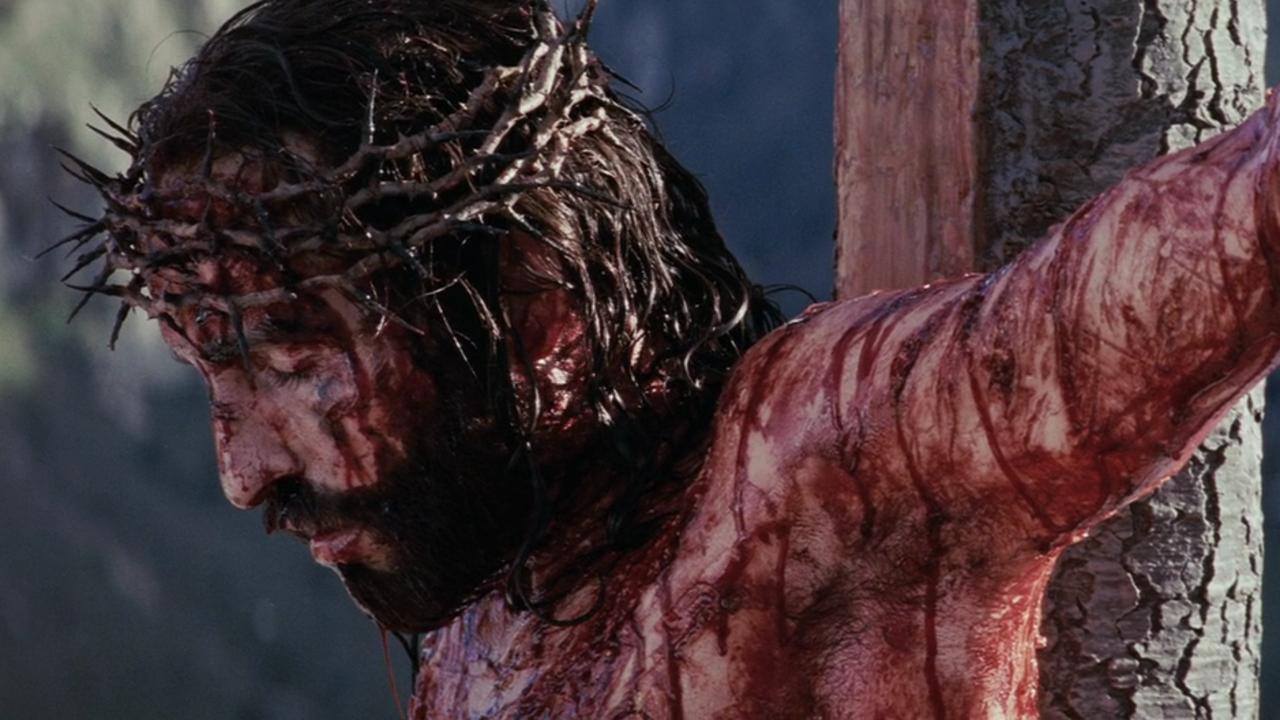Thursday Rethink: The Passion is Not a Meaningless Work of Pornographic Violence
The Proposition: Mel Gibson's The Passion of the Christ (2004) is neither a meaningless depiction of torture nor a work of pornographic violence. In fact, the graphic violence depicted onscreen is directly connected to the film's provocative message.
The Background:The Passion of the Christ, a graphic depiction of the final twelve hours in the life of Jesus Christ (Jim Caviezel), is one of the most controversial movies of all time. While the debate before the film's release in 2004 centred around its alleged anti-Semitism, in the years after opinions on the film have become almost inextricably tied to opinions on the director, Mel Gibson, who himself has generated several furors over his personal life and misbehaviour. I want to set the charge of anti-Semitism and the character of Mel Gibson aside, to focus rather on the film's presumed impenetrability and gratuitous violence. Does the film revel in its gruesome depiction of Jesus' torture? Does the film punish its audience for no apparent reason? Perhaps some of these opinions reveal more about the viewer than they do about the actual film.
Three Reasons:
1. The film's portrayal of extreme violence is meant to be provocative. Yes, the violence is extreme: it is meant to alarm you. I remember seeing the film at the theatre and not knowing whether I could keep watching the scourging of Jesus, which is still one of the most horrific things I've ever seen on film. Why must the film be so violent then? Gibson wants to provoke us. He refuses to let the audience merely nod approvingly at or ignore Jesus' suffering. So what is Gibson trying to provoke? Our annoyance, anger, reverence, adoration, identification--in short, a profound reaction. Many film critics were disgusted by The Passion; I imagine very few went away saying, "meh." In a way, I'm less concerned about the film's level of violence, and more about anyone who seems entirely unfazed by it.
2. The violence is neither cheap nor hateful. I've argued that the film wants to provoke us, but are its tactics suspect? Or worse, does the film take perverse pleasure in the scenes of torture? To the first charge, I would say that while violence should not be shown lightly, how is one to examine violent suffering without depicting it? In fact, I don't think the film ever shows Jesus' suffering "lightly." We are meant to identify with the sorrowful Mary watching her son suffer, not the perverse Roman soldiers who mock and laugh at him while they beat him. There is always a serious--never playful--tone to the violent scenes, unlike, say, most action movies, or some of the gruesome horror films The Passion has been compared to. What is worse: somber, detailed contemplation of one's man's torture and death, or hundreds of bad guys gleefully mowed down without blood spilled? Re-watching the film, I noticed that the camera lingers only long enough for us to comprehend the magnitude of the violence enacted. The relentless scourging scene actually shows less than we may remember. Even if the violence is serious, what's the point of focusing on all this suffering? Does Gibson just want to make us feel bad? To that charge, I would say that the viewer is remembering the scourging and crucifixion, but forgetting the brief yet essential, and non-violent, scenes intercut throughout the film. Jesus' message about forgiving your enemies is must stronger when we hear him say that in between being mutilated by them. This leads into my third point.
3. The violence is not meaningless, it is meaningful. Intercutting the Crucifixion with the Last Supper, when Jesus describes the bread as his body and the wine as his blood, makes explicit the film's message (which is the Christian message) that Jesus' death is a satisfactory sacrifice for our sins. My point is not that you have to believe this; my point, though, is that this message is clearly present in the film text. The film's clear message is told straightaway to the audience in the opening paraphrase of Isaiah 53: "He was wounded for our transgressions, crushed for our iniquities; by His wounds we are healed." One does not have to agree with the Christian interpretation of Christ's crucifixion to understand the film. However, an avoidance of the film's message reveals a great deal about the viewer's or critic's thoughts about Christianity. Some have said that the Christian message is about love, but that The Passion cares more about violence and suffering. Why does Jesus suffer in the film though? If we read the entire film, Jesus says he suffers out of his love for humankind. The film's extremeness provokes us to accept, reject, or be frustrated by that proposition. In the Gospel of Mark, Jesus asks, "But who do you say that I am?" After The Passion, it is difficult to label this Jesus as just a nice young man who was misunderstood, a guy with some good ideas. The film suggests, to my, and perhaps your, alarm, that Jesus came not just to teach, but to suffer. And that is a controversial thought.
